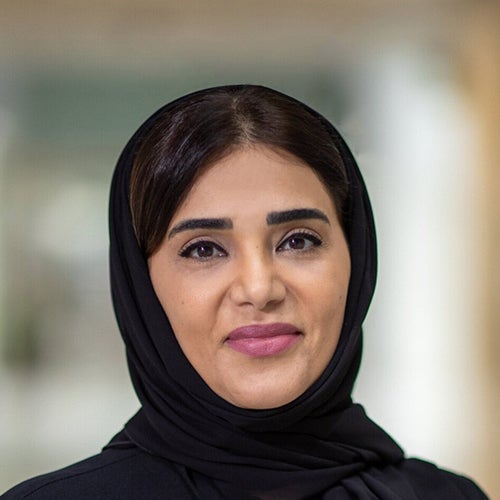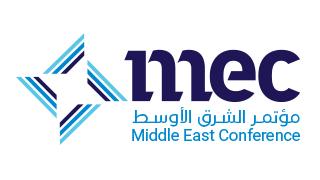Overview
MIDDLE EAST CONFERENCE 2022
Knowledge and Power in Middle East Studies: Regional and International Perspectives
February 6-7, 2022
Since its inception, the study of the region designated as the ‘Middle East’ has presented observers and area studies’ scholars with significant challenges. Knowledge of the region, whether with its colonial roots or with increasing contemporary interest, has been fraught with uneven and conflicting perspectives.
Dean's Welcome Message
I am delighted to announce our first international Middle East Conference, which is taking place from February 6 to 7, 2022 and hosted by the Middle Eastern Studies Department (MESD) of the College of Humanities and Social Sciences (CHSS) at Hamad Bin Khalifa University (HBKU).
CHSS was established with a vision to enrich society in Qatar and across the wider world. We believe there is a need to create homegrown and local knowledge about the region from the region itself. Ironically, research on this part of the world has always originated from the West. It is time for a Middle East Conference to take place here - in the Middle East - to shed light on the challenges we face from within.
Our goal of advancing social justice commits us to making a positive social impact locally and globally through unique and transformative interdisciplinary scholarship opportunities. This conference will facilitate research and innovative approaches for enriching the field from within the region, creating cross-regional and trans-regional academic collaborations. Moreover, the conference will help us discuss and highlight the gaps, norms, and emerging trends in this field of study.
Primarily, this conference will shed light on the Middle East as both a subject of study and a foundation for instruction. Therefore, I am happy to welcome you to the Middle East Conference, which will be a regular biennial conference alternating with the Annual International Translation Conference hosted by our Translation and Interpreting Institute at CHSS, HBKU.
Chair's Welcome Message
Our first major international Middle East Conference comes at a time when our region continues to be under the spotlight. At the same time and for many, this is an introduction to our young and growing Middle Eastern Studies Department (MESD) at the College of Humanities and Social Sciences (CHSS) at Hamad Bin Khalifa University.
MESD is home to a dedicated group of scholars dealing with the study of the Middle East and North Africa region in its various complexities. This conference is devoted to examining the role of knowledge and power within Middle East studies as a discipline and addressing their influence in its evolution both within the region and internationally in recent times.
We look forward to welcoming you to our conference, which promises to bring together renowned scholars offering their insights and contributing to lively exchanges.
Middle East Conference 2022
MIDDLE EAST CONFERENCE 2022
Knowledge and Power in Middle East Studies: Regional and International
Perspectives
February 6-7, 2022
Since its inception, the study of the region designated as the ‘Middle East’ has presented observers and area studies’ scholars with significant challenges. Knowledge of the region, whether with its colonial roots or with increasing contemporary interest, has been fraught with uneven and conflicting perspectives.
Acknowledging the problematic origins of the area known as the ‘Middle East’ and Middle East area studies, our first major international conference is dedicated to re-thinking and re-imagining the epistemologies, directions and agendas of our field. Do colonial legacies still dominate knowledge production, research agendas and representations of the Middle East and if so in what ways? Or can we argue that the rising local and regional capacity in knowledge production and research has gone some way in redressing the epistemological imbalances that have characterised Middle East studies since early days?
To address some of these substantive questions, The Middle Eastern Studies Department (MESD) at the College of Humanities and Social Sciences (CHSS) in Hamad Bin Khalifa University in Doha is pleased to announce its international conference to be held from February 6-7, 2022.
This is an interdisciplinary conference focusing on power asymmetry in knowledge production through selective and probing panels devoted to key thematic areas. Invited speakers and panellists will address:
All the below timings are in Doha time (GMT +3).
- Keynote Speech (February 6, 2022, 11:00 am - 12:30 pm): A Nexus, Not a Locus: Middle Eastern Studies and South-to-South Relations
- Panel 1 (February 6, 2022, 4:00 pm - 5:30 pm): Transnational Dynamics and International Politics: How are Evolving Big Power Politics Impacting the Middle East
- Panel 2 (February 6, 2022, 6:00 pm - 7:30 pm): Analysing the MENA Social Dynamics Using NLP and Big Data Methods
- Panel 3 (February 7, 2022, 4:00 pm - 5:30 pm): Society, Cities, and Space in the MENA Region
- Panel 4 (February 7, 2022, 6:00 pm - 7:30 pm): Knowledge and Power in Palestine: The Quest for Statehood and the Marginalization of Rights
Format
The sessions will be delivered online in webinar format on Webex.
Registration
Conference registration is essential to receive the link to the online session which will be emailed to registrants after submitting this form.
Enquiries
For further information, please direct your enquiries to Charlene Domingo: CDomingo@hbku.edu.qa
College of Humanities and Social Sciences (CHSS)
The College of Humanities and Social Sciences (CHSS) was established with a vision to enrich society in Qatar and across the wider world with transformative educational experiences that bridge disciplinary boundaries and offer the academic community opportunities to engage in innovative research and collaboration. We aspire to nurture a diverse body of academically grounded and socially responsible global citizens, whose versatility will enable them to navigate the complexities of today’s world and become the leaders of tomorrow.
For more information on CHSS, please see: chss.hbku.edu.qa
Hamad Bin Khalifa University (HBKU), Doha
Hamad Bin Khalifa University (HBKU), a member of Qatar Foundation for Education, Science, and Community Development (QF), was founded in 2010 to continue fulfilling QF’s vision of unlocking human potential. HBKU is a homegrown research and graduate studies university that acts as a catalyst for positive transformation in Qatar and the region while having a global impact.
For more information on HBKU, please see: hbku.edu.qa
Program
MIDDLE EAST CONFERENCE 2022
Knowledge and Power in Middle East Studies: Regional and International
Perspectives
February 6-7, 2022
All the below timings are in Doha time (GMT +3).
The conference will be held online, a link to the online session will be emailed to registrants after
filling in this
form.
Sunday, February 6, 2022
11:00 am - 12:30 pm
Welcome:
Professor Hassan Hakimian, Conference Chair and Director of the Middle Eastern Studies Department,
College of Humanities and Social Sciences (HBKU)
Dr. Amal Al-Malki, Founding Dean, College of Humanities and Social Sciences (HBKU)
Keynote Speech:
“A Nexus, Not a Locus: Middle Eastern Studies and South-to-South Relations”
Marwan Kraidy, Dean and CEO, Northwestern University in Qatar, and Professor of Communication and the Anthony
Shadid Chair in Global Media, Politics and Culture at Northwestern.
Moderator: Amal Al-Malki, Founding Dean, College of Humanities and Social Sciences (HBKU)
4:00 pm - 5:30 pm
Panel 1
“Transnational Dynamics and International Politics: How are Evolving Big Power Politics Impacting the Middle East”
Chair: Marc Owen Jones, Assistant Professor, Middle Eastern Studies Department (HBKU)
Moderator: Steve Wright: Associate Dean for Student Affairs, College of Humanities and Social Sciences
(HBKU)
- Lina Khatib, Director, Middle East and North Africa Programme, Chatham House:
“International Foreign Policies Towards the Middle East: Between Disengagement and Pragmatism” - Courtney Freer, Emory University and LSE:
“Transnational Movements in a Globalised World: Regional Rivalries and Ideological Competition?” - Abdulla Al Etaibi, Lecturer, International Affairs Programme, Qatar University:
“Changing Regional Alliances and Patterns of Behaviour”
5:30 pm - 6:00 pm
Break
6:00 pm - 7:30 pm
Panel 2
“Analyzing the MENA Social Dynamics Using NLP and Big Data Methods”
Chair: George Mikros, Professor in Digital Humanities, Middle Eastern Studies Department (HBKU)
Moderator: Wajdi Zaghouani, Assistant Professor in Digital Humanities, Middle Eastern Studies Department
(HBKU)
- Kareem Darwish, Principal Scientist, Principal Scientist, aiXplain Inc:
“News Consumption in Time of Conflict: 2021 Palestinian-Israel War as an Example” - Muhammad Imran, Senior Scientist, Qatar Computing Research Institute (QCRI):
“Two Billion Multilingual COVID-19 Tweets with Sentiment, Entity, Geo, and Gender Labels” - Walid Magdy, Reader, School of Informatics, The University of Edinburgh:
“Understanding the Arab Region from Social Media: What can we learn?” - Eric Atwell, Professor of Artificial Intelligence for Language, School of Computing, University of
Leeds:
“Understanding the Quran: A Challenge for Artificial Intelligence”
Monday, February 7, 2022
4:00 pm - 5:30 pm
Panel 3
“Society, Cities, and Space in the MENA Region”
Chair: Sophie Richter-Devroe, Associate Professor, Middle Eastern Studies Department (HBKU)
Moderator: Carol Fadda, Associate Professor, Middle Eastern Studies Department (HBKU)
- Amy Kallander, Associate Professor in History, The Maxwell School of Citizenship and Public Affairs,
Syracuse University, and Karem Said, Lecturer in Religious Studies, Department of Comparative Cultural
Studies, University of Houston:
“Embodied Masculinities: Navigating Manhood and Identity in Tunis and its Periphery” - Nazanin Shahrokni, Assistant Professor of Gender and Globalisation, Department for Gender Studies,
LSE:
Social Inclusion through/despite Physical Segregation? Gender and Politics of Space in the Islamic Republic of Iran - Hiba Bou Akar, Assistant Professor in the Urban Planning program at Columbia GSAPP:
The Doubleness of Beirut’s Ruins: Between a Past War and Wars Yet to Come
5:30 pm - 6:00 pm
Break
6:00 pm - 7:30 pm
Panel 4
“Knowledge and Power in Palestine: The Quest for Statehood and the Marginalization of Rights”
Chair: Dana Olwan, Associate Professor, Middle Eastern Studies Department (HBKU)
Moderator: Samia Al-Botmeh, Dean of Faculty of Business and Economics, Birzeit University
- Leila Farsakh, Chair and Associate Professor of Political Science, College of Liberal Arts, UMass
Boston:
“Knowledge, Power and the Palestinian Quest for Statehood: Self-Determination Re-examined” - Adam Hanieh, Professor of Political Economy and Global Development, University of Exeter:
“The Political Economy of State Formation in Palestine: A Regional Perspective” - Susan Akram, Clinical Professor of Law, Boston University:
“Palestinian Nationality and “Jewish” Nationality: From the Lausanne Treaty to Today”
7:30 pm - 7:35 pm
Closing Remarks
Hassan Hakimian, Conference Chair and Director of the Middle Eastern Studies Department.
Organizing Committee
MIDDLE EAST CONFERENCE 2022
Knowledge and Power in Middle East Studies: Regional and International
Perspectives
February 6-7, 2022
Conference Committee:
Conference Chair
- Professor Hassan Hakimian, Director of Middle Eastern Studies at the College of Humanities and Social Studies, HBKU
Conference Committee Members (in alphabetical order)
- Dr. Carol Fadda
- Professor George K. Mikros
- Dr. Dana Olwan
- Dr. Marc Owen Jones
- Dr. Hassan Hakimian
- Dr. Sophie Richter-Devroe
- Dr. Steven Wright
- Dr. Wajdi Zaghouani
Conference Administrator
- Mrs. Charlene Domingo, cdomingo@hbku.edu.qa



